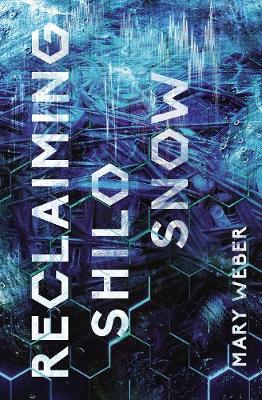Reviewed by sa090 on
───────────────────
The book carries on immediately after the first book and while it took me some time to actually remember all the details, I was up to speed after a few chapters. This in itself didn’t actually hinder my enjoyment given how fast it was resolved, but there are other elements in the book that just destroyed said enjoyment at times. For example, the matter of convenience that happens in this book as we proceed with the events is one of the bigger issues I have with it. Not because it doesn’t make sense or anything of the sort, but instead it’s presented in a way that automatically resolved any possible inconsistency issues the book previously presented to me while effectively lessening the danger all the same, which I will expand on below in the comments because of spoilers. Moreover, the book also adds a very convenient thing to our main characters that only ended up killing the tension of all future confrontations for me.
I liked learning more about the Delonese and their issues if you will, more about their planet’s structure and more importantly about their bigger plans involving the abducted children and what they planned to do with them. That being said, I wished for so much more than this. I mean the conversation was almost steered in that way and actually presented with the opportunity to be explored in another but the book just skims over it to focus on other things. While the origins and a bigger focus on it wasn’t exactly that big of a deal or in that big of a need to understand the book, I selfishly wanted to know more about the Delonese before these 11 years. This book also shows how utterly merciful the Delonese actually are to threats, I mean other than a few characters, they really never needed to keep most of the cast alive, yet they did without issues. Brain meddling can only do so much, but I guess I’ll never know exactly why they took this approach instead of actually showing how ruthless they should’ve been.
Speaking of the cast, I find myself sighing in annoyance a lot more than I expected. Mary Weber has this very annoying way of writing that tries to convince me so badly of how out of this world Miguel is to the masses in this book, but all this trying really just ends up as a massive turn off for me and I can’t think of him as anything, but pretty lame. Sofi showed more growth in this book, but she still ended up doing something incredibly stupid. There was one very annoying thing when taking in their very flat romance into consideration which I will put in the comments again with examples to make it clearer. In here in particular though, I’m eternally grateful that Mary Weber added Inola Snow’s POV alongside the previously mentioned two because she was without a doubt the more interesting one out of the bunch. While that can be said for sure and it gives a very nice perspective of why she’s been away for so long, her actions are very contradictory to her loss. Losing 1 out of 3, should’ve made you a lot more concerned about the remaining ones in my honest opinion.
That though I can ignore, but what I can’t ignore is how incredibly stupid Earth’s population is in this verse and more importantly the writing of this book. FanFight is still a thing in the book, but a real reason for this fight is still nowhere to be seen. I can argue that it made great sense to Inola, but what about the others? This isn’t the film Gamer where it’s death row convicts facing death, but normal people, yet everyone is so bloodthirsty about it that it’s very difficult to take in. And it’s not only that, despite the very obvious hints that the Delonese are not our friends, they need to be “told” that they’re a threat before they start being suspicious and move on from there. Why is it that only the handful of characters we actually deal with are the only ones using their minds? That’s not fun to read about when discussing a supposedly intelligent species, no conspiracy theorists around? No disgruntled chatty former employees? No rumors? It doesn’t make sense.
The writing is my second big issue with this book and I don’t know what happened here, but this book feels like it’s all over the place. The writing can get pretty confusing at times and I have to read again to try and realign myself with the story’s progression. The first few times were a bit weird, but after I saw that it’s not ending, I’m actually wondering about what happened because the first book didn’t have this particular issue with the writing if I recall correctly. No, the issues with writing that the books in this duology share is the unnecessary usage of some vocabulary and Miguel’s insertion of Spanish words that never needed to be inserted in the first place. I mean really? If it’s not the way it’s actually called, then I see no reason for it to be included at all.
I do think that ultimately this book is better than the first one, but neither managed to entertain me all that much with all these hindering my enjoyment.
Final rating: 2/5
Reading updates
- Started reading
- 7 April, 2018: Finished reading
- 7 April, 2018: Reviewed
